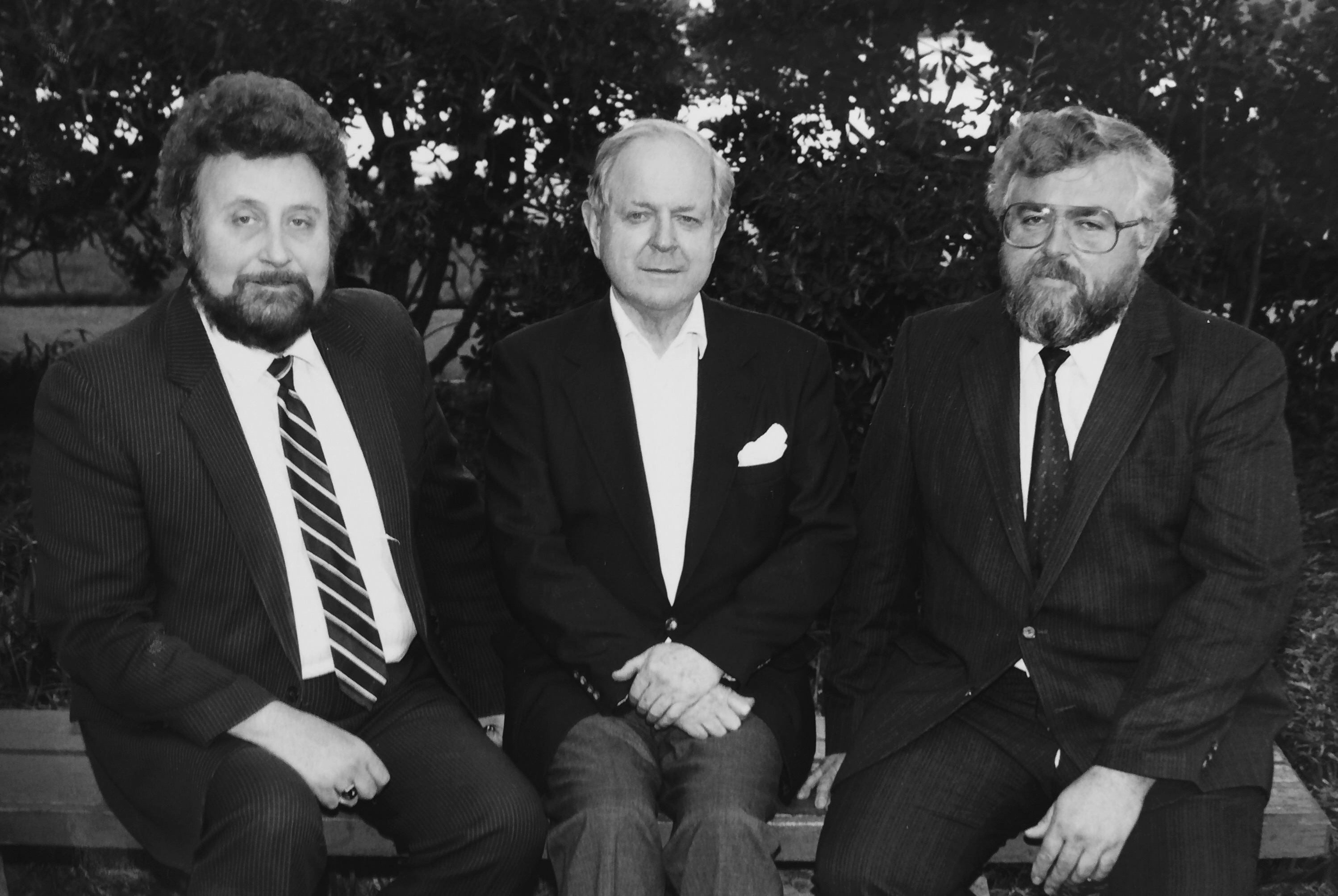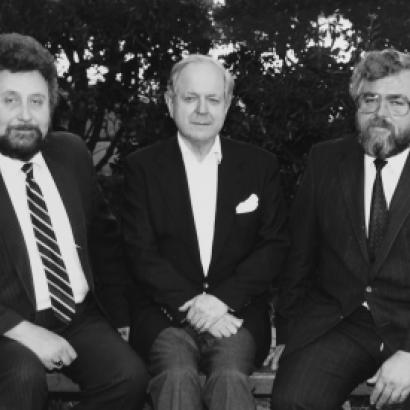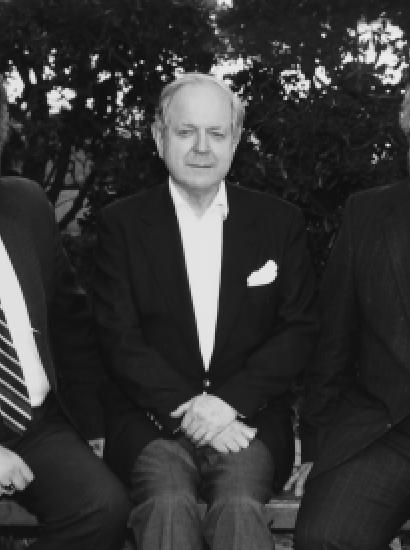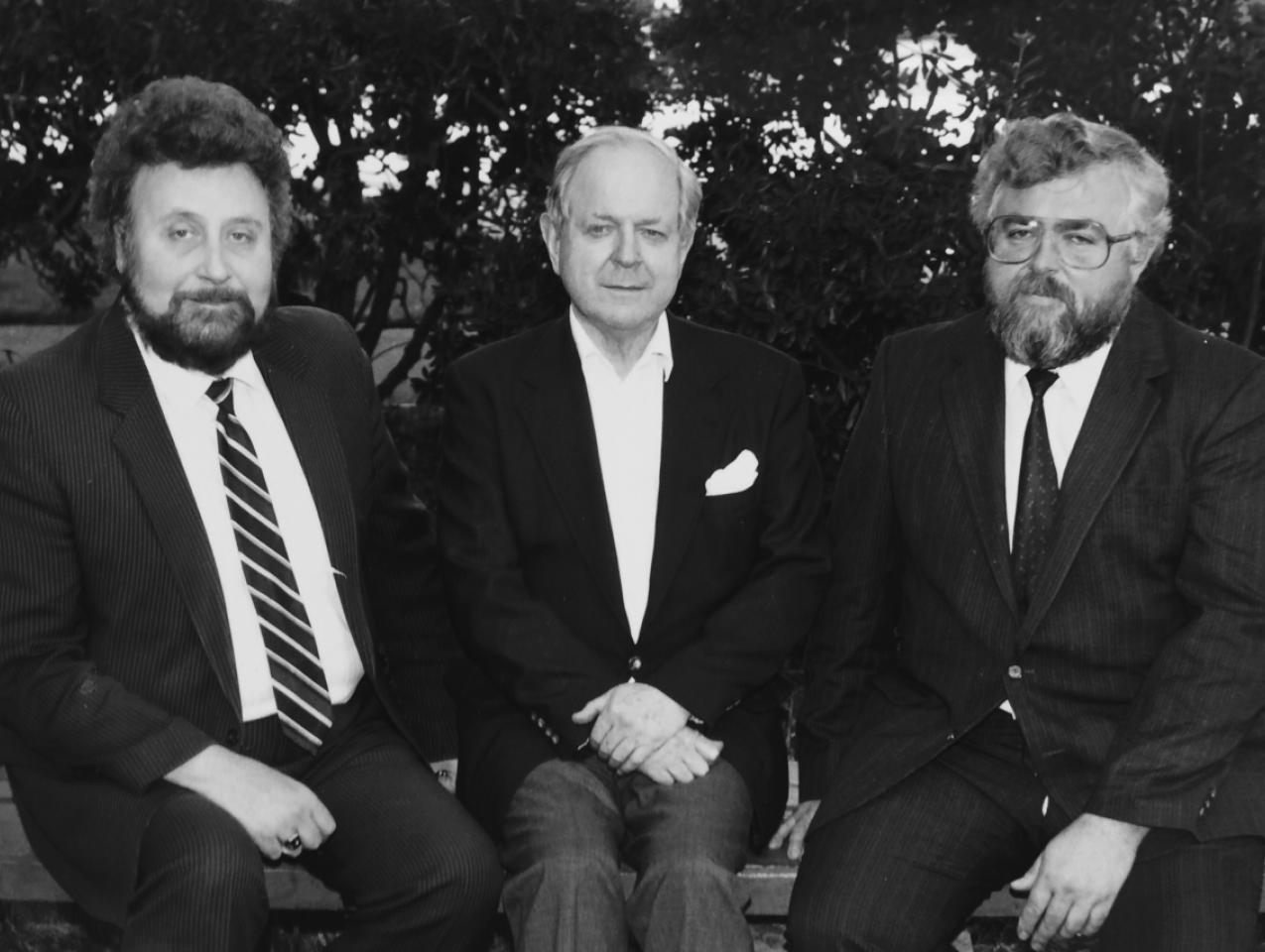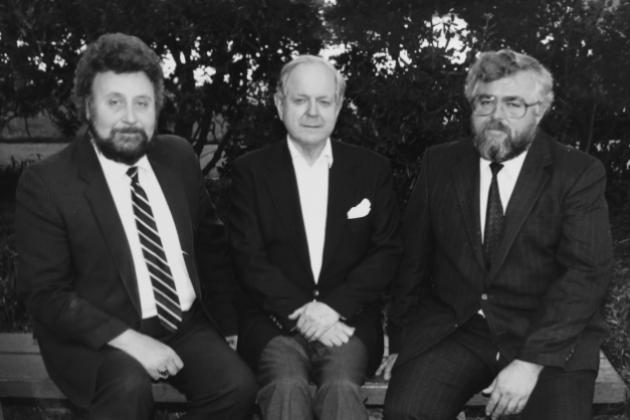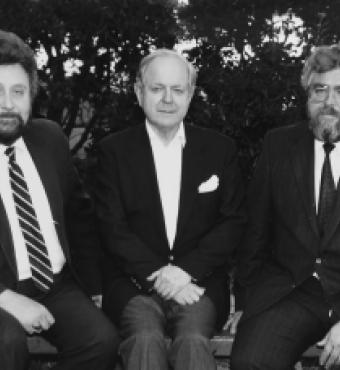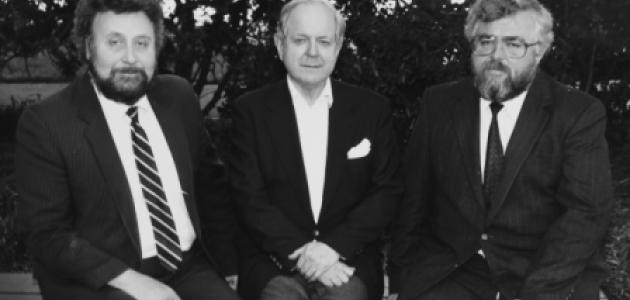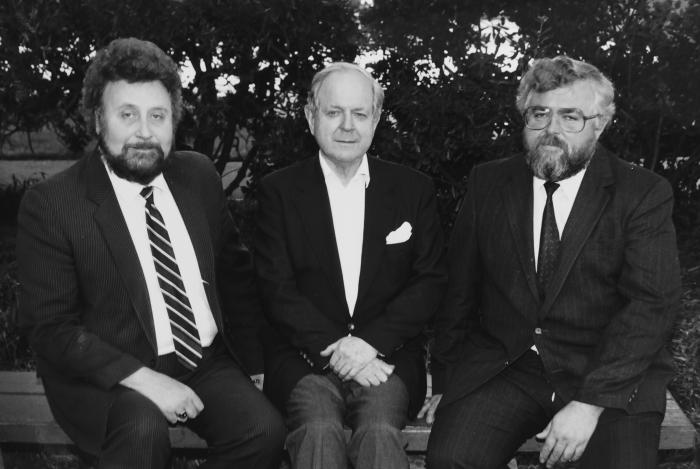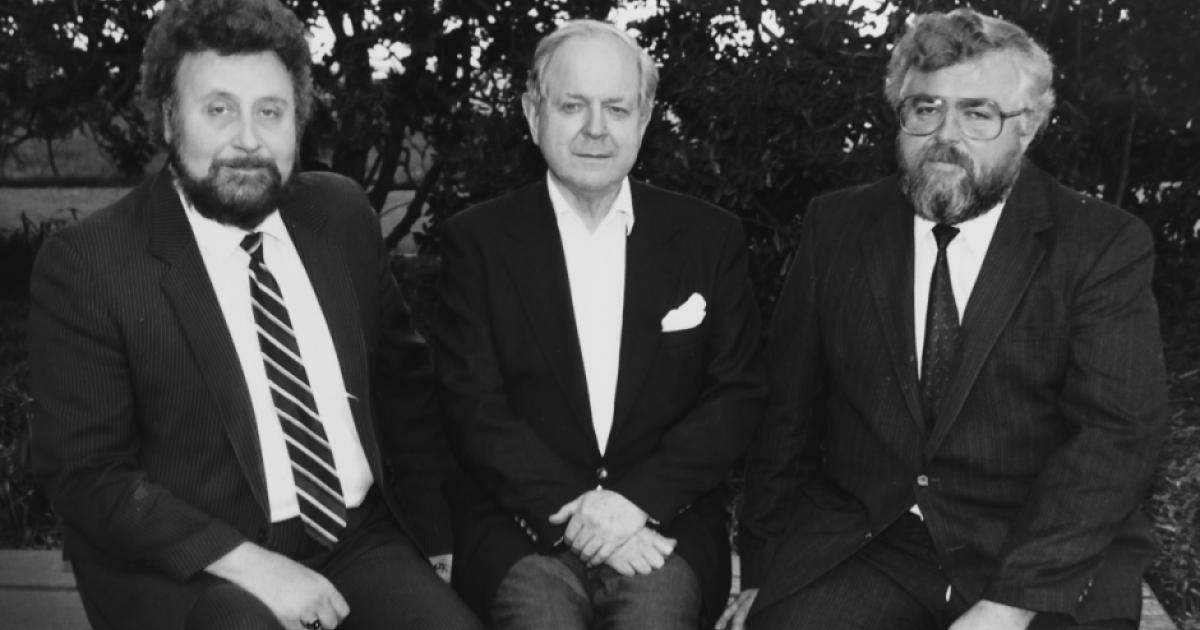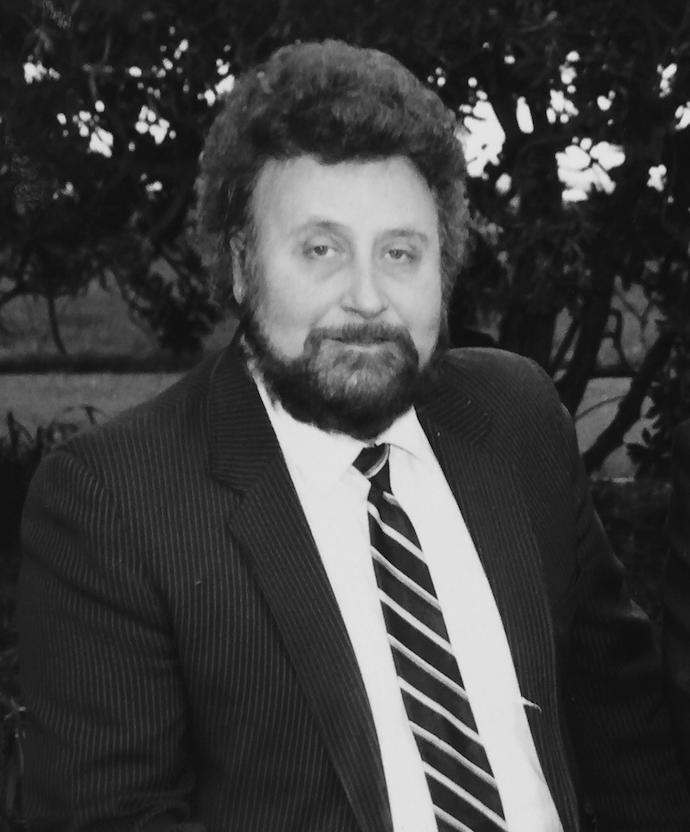
Joseph Dwyer worked at the Hoover Institution from 1978 until his retirement in 2007. His career included being, successively, Slavic bibliographer, deputy curator of the Soviet and East European Collection, and curator of the Russian Collection, after succeeding Robert Conquest in 2002. While at Hoover Dwyer traveled extensively within his curatorial region as well as developed important émigré contacts in the United States and Western Europe, which resulted in the acquisition of many significant East European, Soviet, and Russian archival collections and ephemeral publications. It was through Joseph Dwyer’s efforts that Hoover’s outstanding collections of East European and Russian underground and independent publications began.
The Soviet and Post-Soviet Independent Publications Collection initiated by Joseph Dwyer is now the premier collection of small-circulation periodicals (newspapers, bulletins, and journals) outside the territory of the former USSR, including publications by most of the large and small parties and political movements in the various languages of the region. Dwyer also participated in the Hoover Institution’s major archival projects of the 1990s, such as the Archives of the Soviet Communist Party and Soviet State microfilming project and the Cold War oral history interview project jointly conducted with the Gorbachev Foundation. During the tumultuous years following the collapse of the USSR, Dwyer focused on collecting the records and papers of people and organizations active in the nascent civil society organizations of the time, particularly in the Russian Federation, resulting in major acquisitions, such as the records of the Demokraticheskaia Rossiia political party and important materials on the burgeoning independent trade union movement. Perhaps his greatest coup, however, was the acquisition of the papers of Vitalii Kataev, a leading adviser to Gorbachev on nuclear arms. Those papers formed the backbone of David Hoffman’s Pulitzer Prize–winning The Dead Hand: The Untold Story of the Cold War Arms Race and Its Dangerous Legacy (New York: Doubleday, 2009). Dwyer was an invaluable resource to Hoover fellows such as Robert Conquest, John Dunlop, and Michael McFaul, who applauded his efforts to document developments in the Russian Federation in the 1990s in his The Troubled Birth of Russian Democracy (Stanford, CA: Hoover Institution Press, 1993).
Dwyer had a great ability and passion to master foreign languages. He learned German from his live-in grandmother. He also picked up a little Polish and other foreign words with the help of childhood friends from immigrant families. While in a Catholic high school in Minneapolis he completed coursework in Latin, Spanish, German, and French, in addition to studying Persian with the help of an Iranian immigrant-friend whom he taught English. During his university studies, besides Russian, he took an intensive Chinese summer course at the University of Southern California. Later, while already working, he took classes in Lithuanian, Latvian, Serbo-Croatian, Slovene, Bulgarian, as well as Persian. He had no formal training in Polish yet was able to read it and speak it well. By the time he came to Hoover, Dwyer had a working knowledge of at least twenty languages. He was more than a polyglot; he was a linguistic genius.
Unlike most academic bibliographers and archival curators, Joseph Dwyer was not a historian or a political scientist or a literary scholar who happened to work in a library but a superbly trained professional librarian with a broad interest and knowledge of libraries, books, and special collections. After leaving the University of Minnesota in 1966, Dwyer accepted a position as a cataloger in the library of St. Cloud State College in Minnesota. A year later Dwyer moved to the University of Pennsylvania, where he took the job of Slavic bibliographer. After three years in Pennsylvania, Joseph Dwyer took a year’s leave to help organize and direct the American-style library at Pahlavi University in Shiraz, Iran. He returned to Pennsylvania in 1971, only to move again two years later to a curatorial appointment at the Immigration History Research Center (IHRC) at the University of Minnesota. He stayed at the IHRC for five years, until recruited by the Hoover Institution in 1978.
While at Hoover, Joseph Dwyer actively participated in scholarship and was a member of numerous professional organizations, delivering papers and lectures at conferences and conventions. He represented the Hoover Institution on various regional, national, and international Slavic and East European cooperative project committees and advisory boards. As an editor, compiler, and author, Dwyer published more than fifty articles, guides to collections, chapters, book reviews, and notes on the Slavic and East European library and archival field. Among his book-length publications, Russia, the Soviet Union and Eastern Europe: A Survey of Holdings at the Hoover Institution on War, Revolution and Peace, which completed the work begun by Witold Sworakowski, was the most important guide to the subject for many years after its 1980 release by the Hoover Press. A tribute to Joseph Dwyer’s extensive knowledge and intellectual flexibility was his participation in Hoover’s flagship publication, Yearbook on International Communist Affairs, in which he covered Iranian affairs in consecutive volumes from 1981 through 1984.
Joseph D. Dwyer was born in Chicago Heights, Illinois, in 1942. He studied at the University of Minnesota, earning his BA in Russian and geography in 1964, followed two years later by a MA in library science and Soviet studies.




